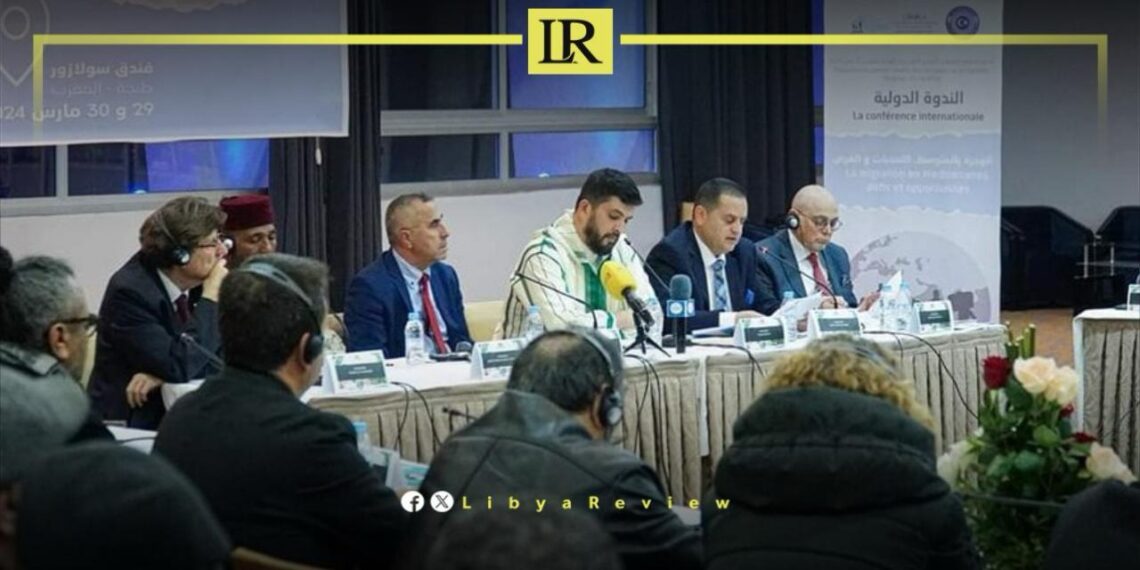On Sunday, Libya’s Minister of Foreign Affairs and International Cooperation, Abdelhadi Al-Hwaij, called for a groundbreaking shift in addressing migration, suggesting a strategy that places Africa at its core.
Speaking at an international symposium on migration titled “Challenges and Opportunities” in Tangier, Morocco, Al-Hwaij stressed the importance of transitioning from a history of domination and colonization to one of cooperation, partnership, and mutual respect. He advocated for the Mediterranean to transform from a perilous crossing into a zone of peace, coexistence, and harmony.
This call to action was made in the presence of an international audience comprising experts, researchers, policymakers, and professionals working in the migration field from both European Union member states and African countries. Al-Hwaij’s vision aligns with creating a humane and secure environment for migrants, aiming to eliminate the Mediterranean’s notoriety as a route of despair and tragedy.
Reiterating Libya’s commitment to hosting the African-European Conference on migration, as outlined in the Benghazi Declaration from the previous African Migration Conference in January, Al-Hwaij highlighted Libya’s readiness to lead by example. This commitment underlines a dedication to fostering dialogue between Africa and Europe, to develop sustainable and compassionate solutions to migration challenges.
The push for a new approach to migration, with Africa at the forefront, is timely. The Mediterranean Sea has long been a dangerous passage for those seeking refuge and better opportunities in Europe. Al-Hwaij’s proposal not only calls for immediate action to safeguard lives but also seeks long-term solutions that address the root causes of migration, such as conflict, poverty, and human rights abuses.
Al-Hwaij’s advocacy for an African-centric migration strategy marks a critical step toward redefining the international community’s response to migration. By emphasizing cooperation over conflict and dignity over despair, this approach offers a blueprint for a future where migration is managed in a way that is safe, legal, and respectful of human rights.
The Libyan government’s initiative to bridge African and European perspectives on migration could set a new standard for global cooperation, paving the way for a more just and humane migration system.


